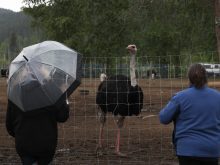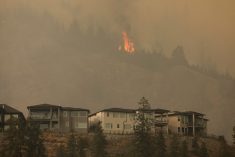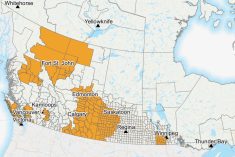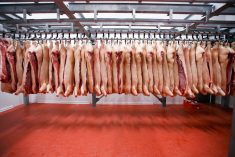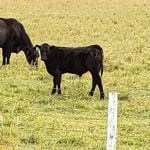British Columbia is set to consolidate all provincial-level meat inspection duties into its agriculture ministry — including the regulatory oversight for on-farm slaughter work.
The province announced Wednesday that all slaughter work licensed under its Meat Inspection Regulation for Class A, B, D and E sites will now be regulated through the ag ministry, starting Dec. 1.
Oversight of Class D and E on-farm licensees is currently the responsibility of regional health authorities’ environmental health officers.
The move will help ensure “overall consistency” in Class D and E administration, the province said Wednesday.
Read Also

Ample supplies and improved livestock sector to boost Canadian feed sector: FCC
Abundant feed grain supplies and improved profitability for the livestock sector should support strong feed demand and sales through the winter, says a new report from Farm Credit Canada.
The province said the move will also streamline licensing to “reduce the administrative burdens” for animal slaughtering businesses, while also “increasing frequency of inspections to ensure food safety and animal welfare is maintained.”
The change is a response to “recent consultation,” the province said, noting a 2018 report from the provincial legislature’s select standing committee on agriculture, fish and food on local meat production and inspection.
That report cited presenters who suggested inspection rules and standards in place for Class A and B facilities could be “expanded or modified” to apply to Class D and E facilities, “thereby bringing provincial meat inspection within a single centralized system.”
The Small Scale Meat Producers Association, for one, recommended bringing all licence classes “under the purview of a single authority, preferably the ministry of agriculture,” the report noted.
Such a move, the report said, “could increase efficiency, reduce capacity for error, and provide clearer direction and better understanding of regulations and the codes of practice for producers and processors.”
The committee’s report also showed respondents to its survey “indicated that current regulations are too restrictive or onerous for small producers, and can increase costs where profit margins are already minimal.”
B.C.’s Class D licences are currently available in 10 regional districts where it’s been deemed “unlikely that Class A or B abattoirs will operate due to low population, low livestock numbers and transport challenges.”
A Class D licence permits a holder to slaughter up to 11,340 kg per year (that is, up to 25 “animal units”) of their own animals and other peoples’ animals on farm. That meat may be sold “with appropriate permitting from health authorities” at the farm gate, to retail outlets and temporary farm markets, within the district in which the licence was issued.
Class E licences, meanwhile, are available anywhere in the province, but under “more restrictive” conditions than for Class D. Class E licensees first must complete a feasibility study that “clearly indicates lack of available slaughter services.”
Class E licensing permits a holder to slaughter up to 4,536 kg (up to 10 animal units) per year — but of their own animals only — on the farm. That meat may be sold at the farm gate, and to temporary farm markets within the regional district — but not to retail outlets.
Also, the agriculture ministry currently recommends against granting a Class E licence in cases where a Class A or B abattoir is located within up to an hour’s travel time from the proposed Class E site.
“This change will enable effective oversight and create more opportunities for small on-farm abattoirs,” Lillooet rancher and SSMPA vice-president Tristan Banwell, a Class D licensee, said Wednesday in the province’s release.
“We will also have a clear path to growth for those who want to expand their facilities, which is crucial as we work to rebuild diverse local economies in rural areas.”
“We look forward to working collaboratively with all licence holders to ensure food safety and animal welfare requirements are being met, while continuing to support more opportunities for the production and sales of locally raised meat products in B.C.,” provincial Agriculture Minister Lana Popham said in the same release. — Glacier FarmMedia Network




